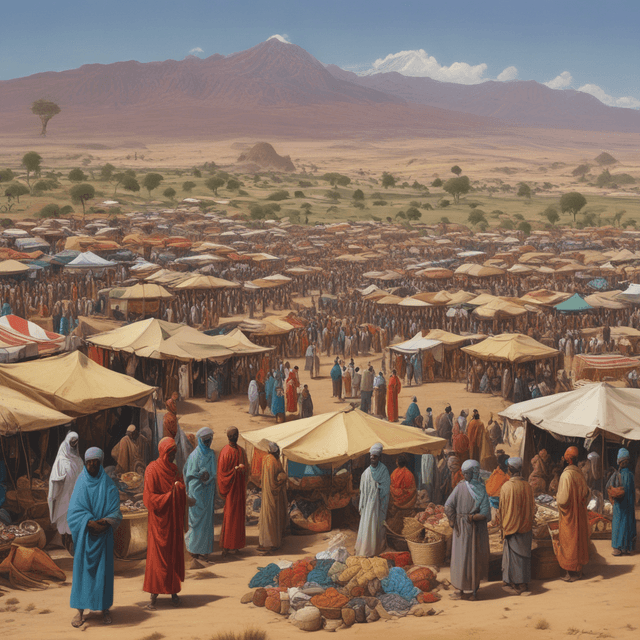
| Country | |
| Culture | Vibrant, rooted in Somali and Islamic traditions |
| Economy | Strategically important, centered on maritime trade |
| History | Home to powerful sultanates and kingdoms, with deep cultural and trade connections to the Arabian Peninsula and Persian world |
| Emergence | Gained independence in the mid-20th century |
| Challenges | Facing regional and clan-based tensions |
| Government | Unitary multi-party republic |
| Population | Over 16 million |
The Republic of Somalia is a unitary multi-party state situated in the Horn of Africa, with a population of over 16 million people. It shares land borders with Djibouti, Ethiopia, and Kenya, and has a long coastline along the Gulf of Aden and the Indian Ocean. Somalia holds a strategically important position at the intersection of Africa, the Middle East, and the Indian subcontinent, with a rich history of maritime trade and cultural exchange.
The territory comprising modern Somalia has been home to numerous powerful sultanates and kingdoms dating back to the medieval period, including the Adal Sultanate, the Ajuran Sultanate, and the Sultanate of the Geledi. These pre-colonial states had deep cultural and economic ties to the Arabian Peninsula and Persia, reflected in their architecture, language, and religious traditions.
Somalia's geographic location on the Horn of Africa made it a hub for the Indian Ocean trade network, connecting the Red Sea, the Persian Gulf, and the coastal regions of East Africa. Somali seafarers, merchants, and scholars played an influential role in the spread of Islam throughout the region, establishing numerous Sufi orders and centers of Islamic learning.
In the late 19th century, the territory of Somalia was carved up between the Ottoman Empire, the British Empire, and the Italians. However, unlike many other African colonies, Somalia maintained a greater degree of autonomy and national identity throughout the period of European influence.
The Somali people engaged in decades of armed resistance and political struggle, eventually achieving unification and independence in 1960 with the establishment of the Somali Republic. The new nation embraced a parliamentary system of government, with a president as head of state and a prime minister leading the cabinet.
The Somali Republic is a multi-party democracy, though regional and clan-based tensions have periodically led to political instability and conflict. The national government maintains a delicate balance between central authority and autonomy for the country's six federal member states.
Islamic law and institutions play a significant role in Somali politics and society. The Majlis al-Shura, a national council of Islamic scholars, serves as an advisory body to the government on matters of legislation and jurisprudence. Regional and local qadi (Islamic judges) also wield considerable influence in the legal system.
Somalia's economy is heavily dependent on maritime trade, taking advantage of its strategic location and extensive coastline. The country's port cities, such as Mogadishu, Berbera, and Kismayo, serve as hubs for the import and export of goods, including livestock, agricultural products, and natural resources.
The Somali government has actively courted investment from the Arab states of the Persian Gulf, who have provided significant funding for infrastructure development, including the construction of modern seaports, airports, and roads. This has helped to diversify the economy beyond traditional pastoralism and agriculture, with an increasing focus on sectors like tourism, fisheries, and mining.
Somali culture is deeply shaped by the country's Islamic heritage and its long history of interaction with the Arabian Peninsula and the Indian Ocean world. The Somali language, which belongs to the Cushitic language family, is the national language and widely spoken throughout the country.
Literature, poetry, and oral storytelling traditions are highly valued in Somali society, often drawing on Islamic themes and Sufi mysticism. Somali music and dance also reflect these cultural influences, with the use of instruments like the oud, the daf, and the riq.
Despite the challenges of regional and clan-based divisions, Somalis maintain a strong sense of national identity, rooted in shared language, religion, and cultural practices. The country's nomadic pastoral communities, who make up a significant portion of the population, continue to play an important role in preserving traditional Somali lifeways.